Through Their Eyes: COVID-19 Chronicles with Jane Musui
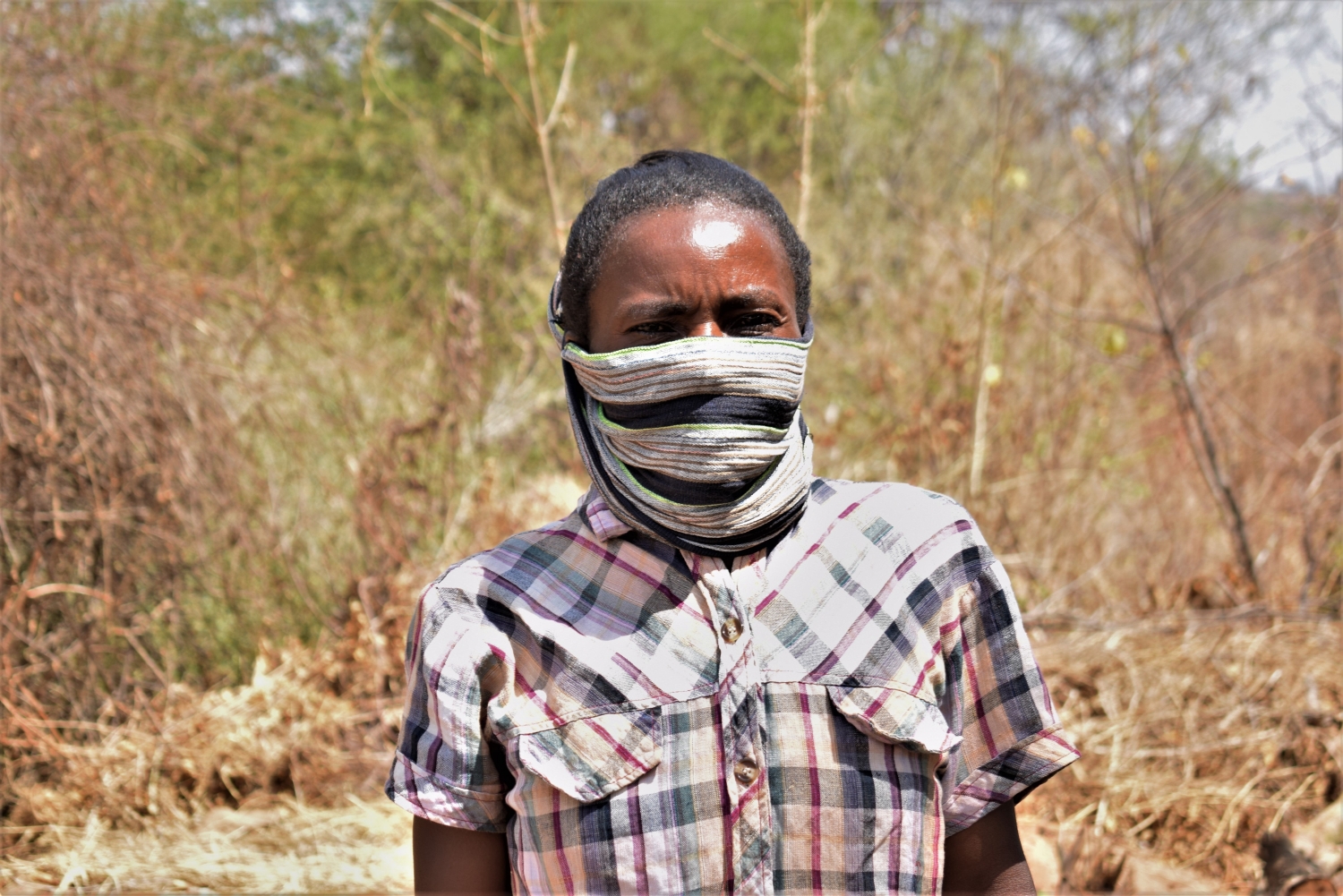
Jane Musui
Our team recently visited Kithoni Community in Southeast Kenya to conduct a COVID-19 prevention training and monitor their water point. Shortly after, we returned to check in on the community, offer a COVID-19 refresher training, and ask how the pandemic is affecting their lives.
During this most recent visit, Jane Musui shared her story of how the coronavirus is impacting her life and her community.
Field Officer Lilian Kendi met Jane outside her home to conduct the interview. Both Lillian and Jane observed physical distancing and other precautions throughout the visit to ensure their health and safety. The following is Jane’s story in her own words.
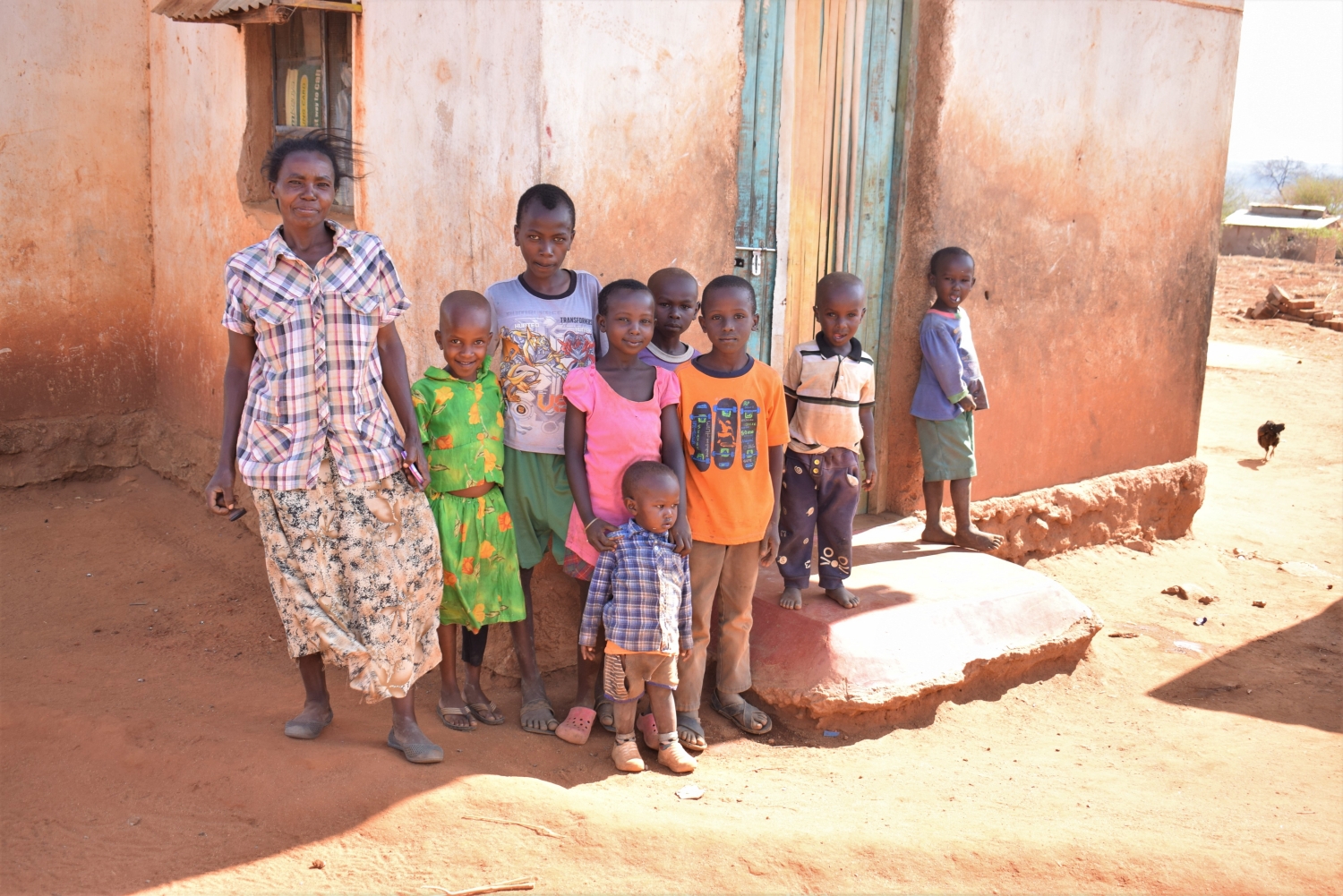
Jane and her children.
What is one thing that has changed in your community since the completion of the water project?
A lot has changed since the installation of this water point. We have had easy access to clean water for use at our homes. The water has been very beneficial for drinking, cooking, cleaning, and handwashing as it is vital at this time. Farming activities have also increased, such as plantation of trees and the establishment of tree nurseries.
How has having a clean water point helped you through the pandemic so far?
Having clean water access has been very helpful during this pandemic as I have had water to drink, cook, and clean the house. We have also had sufficient water for handwashing at all times as water is readily available.
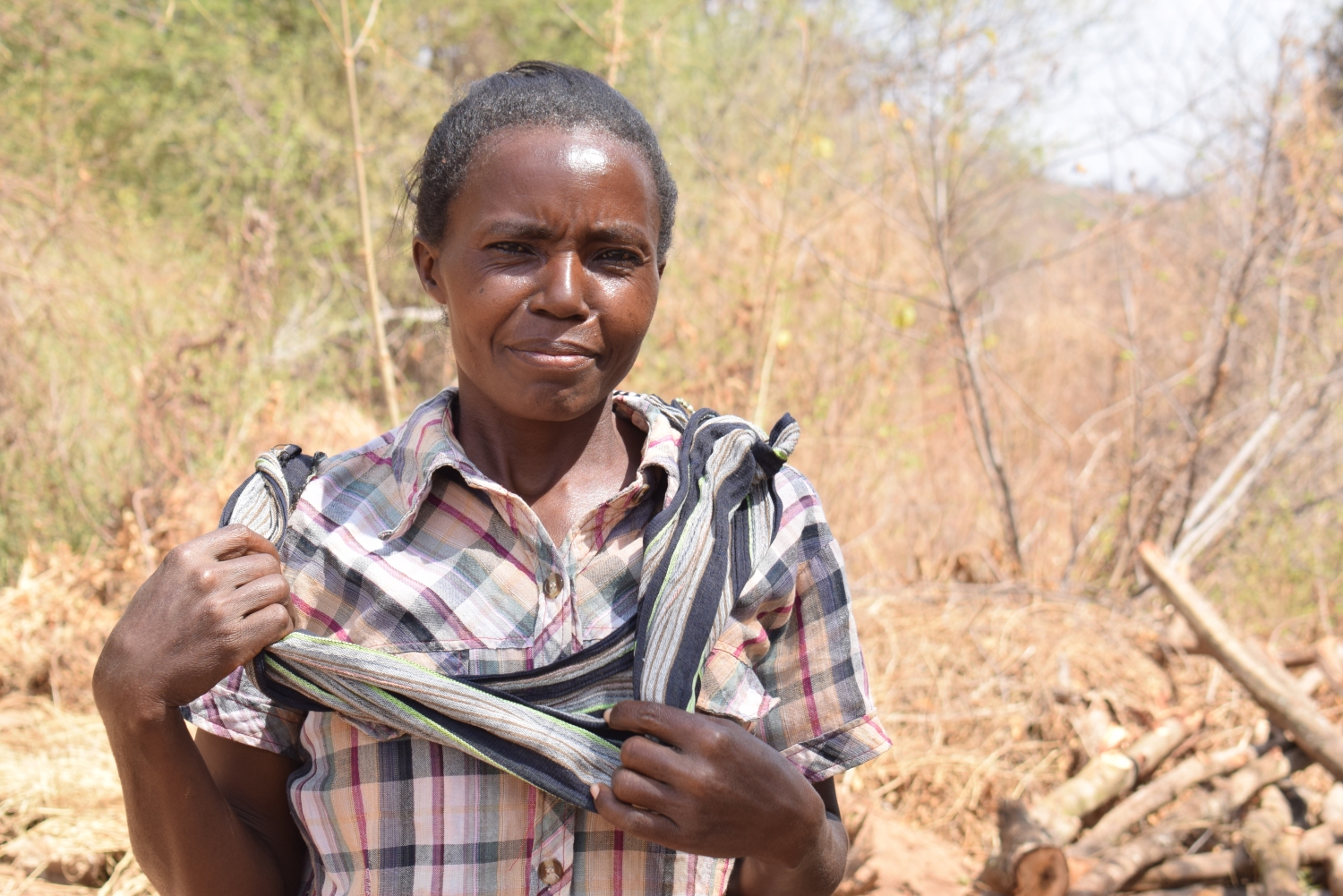
Since the outbreak of COVID-19 in Kenya, has fetching water changed for you because of restrictions, new rules, or your concerns about the virus?
Yes, since the outbreak of COVID-19 in our country, fetching water has changed for me. I had to wait in line and observe social distancing to reduce contact with other community members and risk contracting the virus. I also began wearing masks when going to the shallow wells, as it was a prerequisite to protect oneself from contracting the virus.
How has COVID-19 impacted your family?
Lack of jobs has led to low income in the families, a great source of chaos and arguments. Due to the wavering economy, I lacked the money to buy food for the family. My children used to have bread for breakfast and they now have to survive without since we have insufficient funds to cater to such luxuries.
What other challenges are you experiencing due to the COVID-19 pandemic?
Financial strains due to a lack of stable sources of income. Casual labor jobs that we would highly depend on initially were no longer operational as there was a cessation of movement from one area to another to curb the spread of the virus. Commodities purchased from the retail shops became very expensive as a result of the wavering economy.
What hygiene and sanitation steps have you and your community taken to stop the spread of the virus?
The hygiene and sanitation steps we have taken to stop the virus’s spread include:
Washing hands at all times.
Wearing masks whenever we go out to public places.
Practicing social distancing.
Avoiding crowded places.
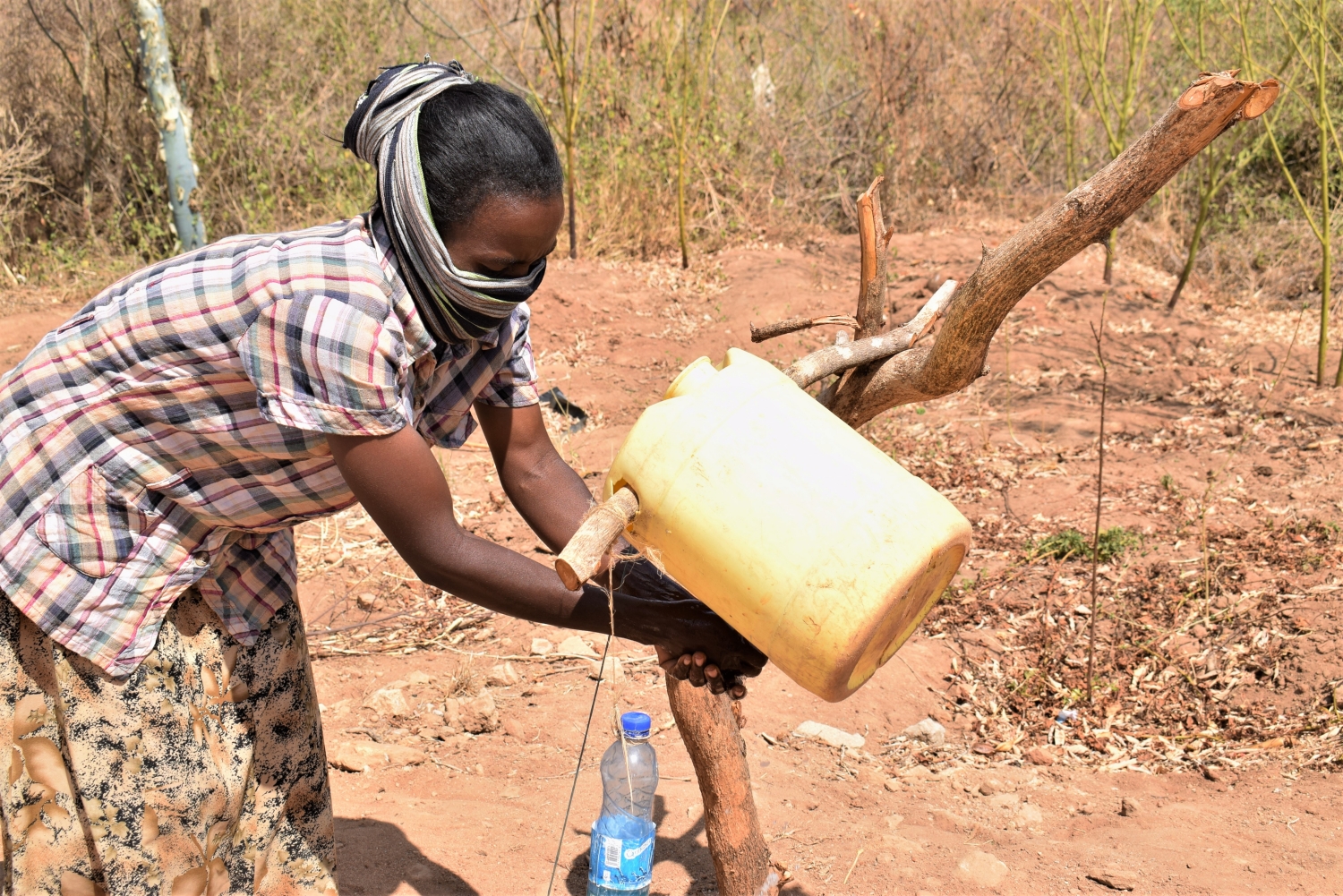
Jane washing her hands.
Since the outbreak of COVID-19 in your country, has accessing food changed for you because of restrictions, new rules, or your concerns about the virus?
I had harvested some food from my farm, which I stored in my granary. The food I had stored ran out very fast. Afterward, it was tough to get food due to a lack of money. At times I would even borrow from the neighbors. It was a tough time. Thankfully, water availability has enabled us to plant vegetables that have helped boost our diets and earn a little income.
Like most governments worldwide, the Kenyan government continues to set and adjust restrictions both nationally and regionally to help control the spread of the virus.
What restriction were you most excited to see lifted already?
I was very excited about the opening of churches and the increased number of attendees, allowing the mature congregation to gather together with the other youth and provide counsel to them. The extension of the nighttime curfew allowed for businesses to be conducted for longer hours. Opening the market places allowed us to run business, such as selling some of the vegetables we had at our farms.
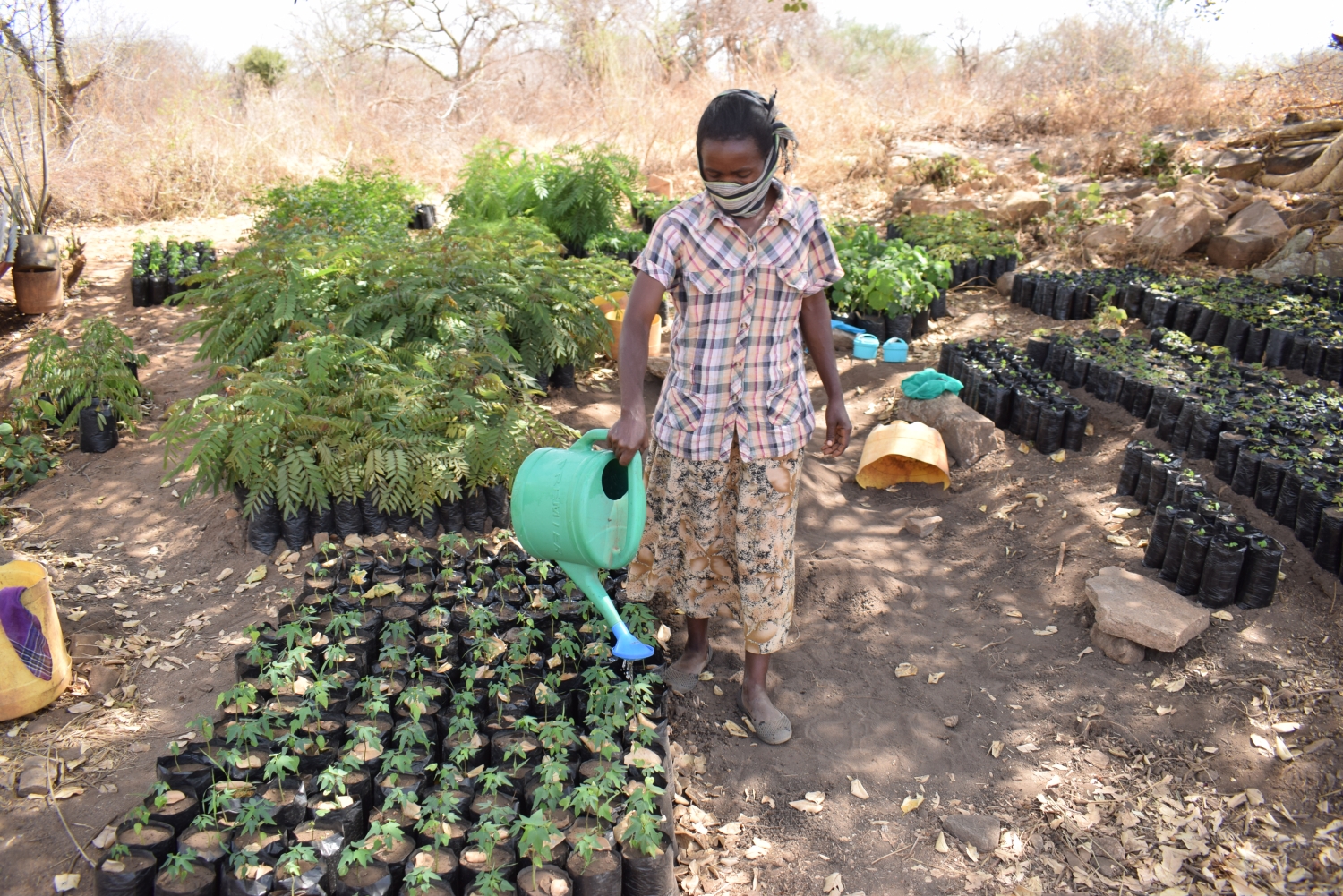
Jane waters her garden.
What restriction are you still looking forward to being lifted?
Opening of schools for the children to get back to learning. They are very idle at home, and it is somewhat difficult to control them.
When asked where she receives information about COVID-19, Jane listed the radio, word of mouth, and our team’s sensitization training.
What has been the most valuable part of the COVID-19 sensitization training you received from our team?
The most valuable part of the COVID-19 sensitization training was making masks and how to wear them well. We were used to only covering our mouths; now we are aware of how to wear them well by covering our noses. I also learned the importance of social distancing, avoiding crowds, and washing hands during this time of the pandemic.
This post is part of a new series by The Water Project meant to highlight the perspectives and experiences of the people we serve and how the COVID-19 pandemic is impacting them. We invite you to read more of their stories here.
Home More Like ThisTweet